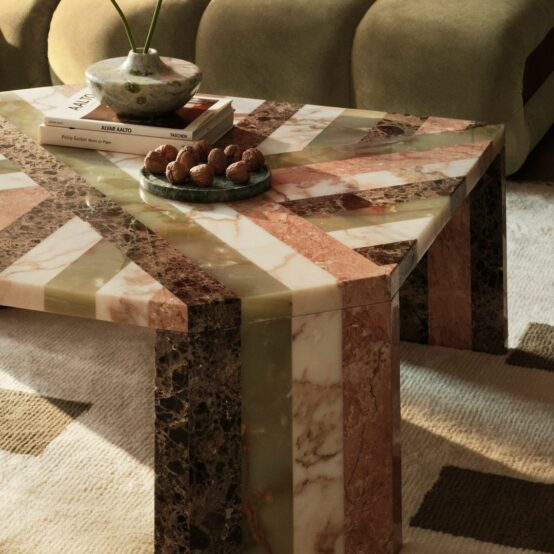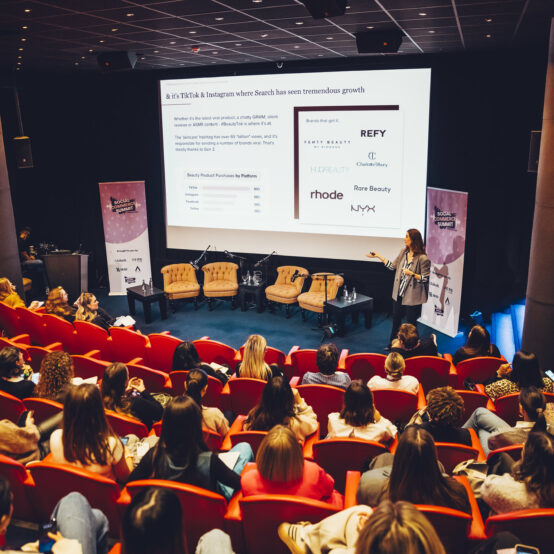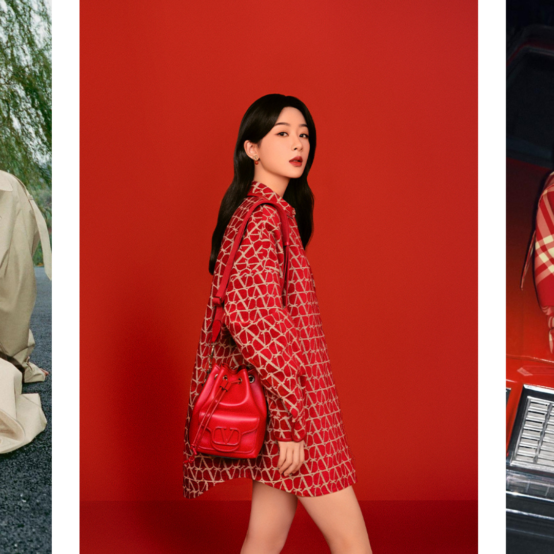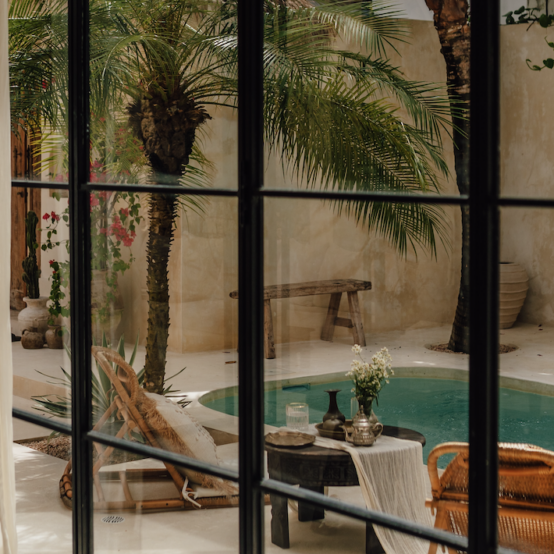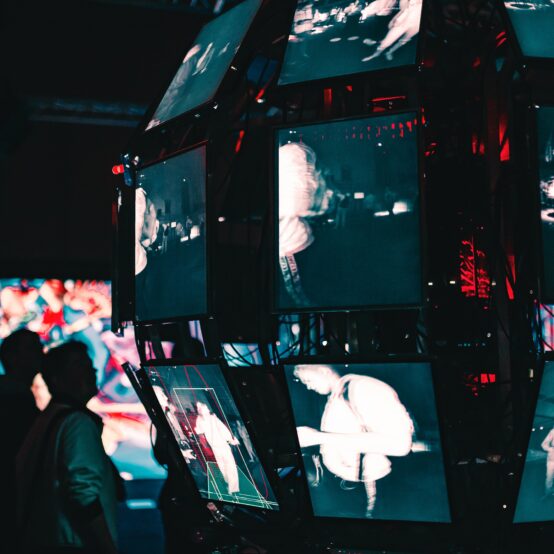The power of celebrity ambassadors when marketing beauty
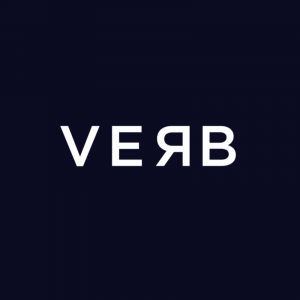
Reading time: 5 min
Do celebrity beauty lines have the pull they used to have?
Celebrity sells. One in three 18- to 34-year-olds in Britain report that endorsement of a product by a celebrity impacts their purchases as well as 13% of over-55s. Consumers who report susceptibility to celebrity-backed products are twice as likely to report that they spend a lot of money on them compared with 20% of the general population. Partnering with celebrities makes commercial sense.
But it’s more complicated than that. There are also more celeb-backed beauty products on the market than ever before. The statistic also reveals that celebrity endorsement does NOT impact purchases for two-thirds of 18- to-34 year olds.
In this article, we examine:
- The history of beauty product celebrity endorsements
- When one-off products became big-brand beauty
- Why many celebrity beauty brands aren’t built to last
- Gen Z and Millennial opinions of celebrity beauty lines
- What the future of celeb-backed beauty might hold
For the purposes of this article, celebrities refers to music, film and television personalities as opposed to sporting personalities whom the public seem to apply different (and more forgiving) judgements to.
The history of celebrity hair and make up collabs
The partnership between celebrities and beauty product manufacturers goes back to the 1950s. The number of partnerships however began to grow rapidly in the 1990s with lines from Cameron Diaz, Destiny’s Child, Madonna and Christina Aguilera.
In the 2000s, the market really took off with beauty lines from, among others, Jennifer Aniston, Britney Spears, Gwen Stefani, Hilary Duff, Jennifer Lopez, Jessica Simpson, Mariah Carey, Naomi Campbell, Paris Hilton, Sarah Jessica Parker and the Olsen twins.
That trend continued from 2010 onwards as we saw Ariana Grande, Drew Barrymore, Gisele Bündchen, Jennifer Lopez, Jessica Alba, Millie Bobby Brown, Rihanna, Salma Hayek, the Kardashians (Kim, Khloé, and Kourtney) and Tyra Banks launch their own beauty ranges.
From our point of view as a luxury marketing agency, the trend for new launches doesn’t appear to be slowing.
When one-off products became celebrity beauty brands
But something important changed around 10 years ago though.
Although many celebrities are still happy to be the face of existing beauty brands, a handful have turned what may have been an opportunistic fragrance launch when their star was rising into a fully-fledged brand.
Think of Emily Ratajkowski’s Loops Beauty, Halsey’s About Face, Jennifer Lopez’s JLo Beauty, Jessica Alba’s Honest Company, Kim Kardashian West’s KKW Beauty, Lady Gaga’s Haus Laboratories, Miranda Kerr’s Kora Organics, Pharrell Williams’s Humanrace, Selena Gomez’s Rare Beauty and Victoria Beckham’s line.
It’s understandable that celebrities want ownership of their image and naming rights in an industry valued at $532bn.
But long-term success can prove elusive. How many celebrity beauty brands stay in our consciousness over five or more years whose revenues either increase on or are consistent with the previous year’s sales?
Why a celebrity beauty brand isn’t meant to last in most cases
Not many celeb beauty brands last the distance. And that’s because it was never their creator’s intention to.
In an article for the New York Times, author Rachel Strugatz details how a handful of companies – “brand incubators” – are responsible for creating many of these brands. Interestingly, many incubators are interested in making money from a celebrity-endorsed or -named product when their star is rising.
Gabriella Beckwith, beauty consultant at market research firm Euromonitor, told Vogue that “celebrities are increasingly aware of the quick financial gains to be made, with the opportunity to monetise a loyal online fanbase and use their social media page as a marketing platform.”
Many celeb beauty brands are opportunistic grabs based upon the short-term ascendency of someone’s fame. In this sense, the beauty industry is taking its lead from other sectors.
In the 1990s, the Spice Girls were the biggest band on the planet for a couple of years. Few expected their fame to last much longer but that didn’t stop them, between the years of 1996 and 1998, become the face of thousands of products including for brands like Channel 5, Cadbury and Pepsi. The arrangement worked out very well for all parties concerned.
But, in the way that pop eventually eats itself, celeb beauty brands may be about to suffer the same fate.
How powerful are Gen Z celebrity influencers?
Gen Z and, to a slightly lesser degree, Millennials want the brands they identify with to support the causes they support and to demonstrate authenticity.
Ipsos tracked 1.5m online conversations in France, the UK and the USA about 53 different celebrity beauty brands, specifically hair care, skin care and makeup trends and brands using sentiment analysis tools.
Between 1st July 2020 and 31st May 2022, conversation on these topics increased by 22% but negative sentiment towards these brands also shot up. Many Gen Zers look at an image of a celebrity endorsing their own product on Instagram and instinctively know that they don’t use it. This turns many off.
But, despite that, celebrities like Hailey Beiber and Kim Kardashian are pushing ahead with DTC launches with the primary promotion vehicle being social media. Pharrell Williams and Harry Styles are trying the same with the growing male beauty market.
One consumer told Ipsos, “dear celebrities, please – and I mean this with the greatest respect – please stop forcing new skincare lines onto us. We don’t need it, we don’t want it. We know you’re not even using it. Please, just stop.”
What does the future of celebrity beauty products hold?
Many brands are reluctant to get fully into bed with a celebrity. Upfront naming and image rights are very expensive, royalty cuts are large and celebs want to shut out brands’ experienced marketing and R&D teams in the creation of products.
Unless a star has long-term staying power, the better bet is for brands to leave celeb-named beauty lines to the incubators who have built businesses around collaborations that barely stretch beyond 24 months.
But, here at Verb, we also feel that the “death of celebrity beauty brands” narrative is completely oversold. There will always be celebrity-backed beauty product marketing campaigns that fall short of expectations. Increasing the chances of success with celeb collaborations is likely to come a learning process on how to manage celebs better and keep them away from having too much control over marketing and R&D.
If you choose to work with one, make sure their fee is commensurate with the 4% increase in sales they on average bring in.
Brands will have a much greater chance of success if they:
- Choose a celebrity whose personality matches their own brand personality. If yours is an approachable brand and humour is part of your appeal, make sure that the public perception of your celebrity partner is the same.
- Leverage the creativity of their celebrity. Many celebrities might not be independent creators in the way that organic influencers are but they have an instinct for choosing material that connects with an audience. Their audiences will want that connection in their collaboration with you too.
- Highlight shared social causes with their celebrity. If a celebrity is an ambassador for a cause you and your followers support or who has spoken out about it in the past, that adds extra authenticity to the message and your partnership.
Celebrity versus organic influencer
For the two-thirds not swayed by celebrity endorsement, you could argue that influencer marketing has taken its place for that segment of the market. For a generation looking for authenticity and a connection with content creators, it’s much easier to identify with someone like you and to think what they say they believe in than someone you regularly see featured on newspaper websites hanging around with film stars.
Approach each product and the audience you’re targeting before deciding whether to use either a celebrity, an influencer or standard corporate advertising. But be sure to take advice first from our team of experts.
Please use the contact form to get in touch with us. We look forward to working with you.
